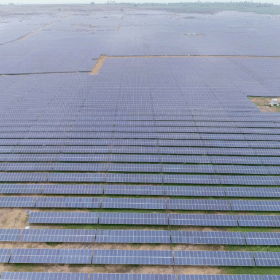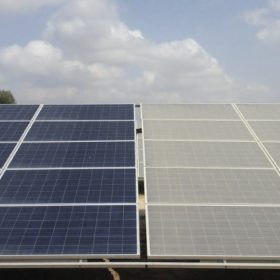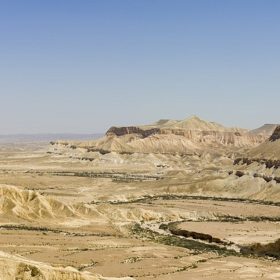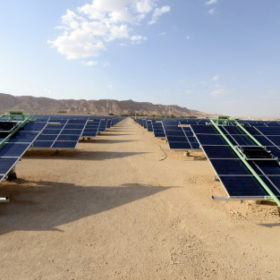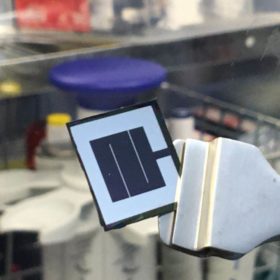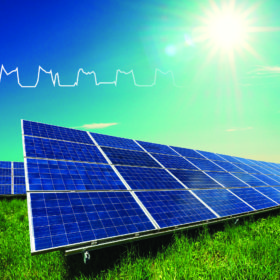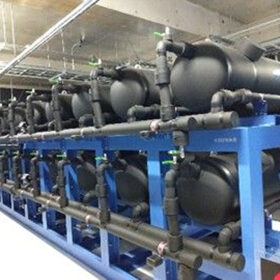India again ranked the world’s most attractive solar market by Ernst & Young
The nation maintained the highest score of 62.7 for solar in the latest edition of Ernst & Young’s renewables attractiveness index. It ranked third for overall renewable energy investment.
AI identifies a $14bn solar problem
How do you know when an inverter or module is under-performing? Monitoring services should shed light on problems but AI-driven digital asset manager Raycatch says much information is hidden behind a wall of “noise.” Breaking that wall with advanced data analysis could unlock billions of cost savings.
The long read: Compressed air storage to be more than just hot air in Israel
Solar-linked projects will be developed by domestic firm Augwind and will feature underground storage tanks. One of the systems will be built by French energy giant EDF and will feature a 20 MWh compressed air storage system and 5 MW solar array.
The long read: Smarter robots to step up to service
On Dec. 1, Tel-Aviv based robotic cleaning provider Ecoppia launched an initial public offering on the Tel Aviv Stock Exchange. In doing so, the seven-year-old solar startup raised $83.8 million from public and institutional investors – although heavily slated toward the latter. Jean Scemama, who joined Ecoppia as CEO in April 2020, says the IPO will allow it to double down on R&D efforts and expand into the provision of services.
Ecoppia robotic cleaners selected for Azure Power’s 450MW solar project
The Israeli developer of module cleaning robots has bagged an order from Indian solar developer Azure Power to deploy its water-free cleaning solution across a 450 MW solar project in Rajasthan.
India and Israel to work together on perovskite solar cells and lithium sulfur batteries
Low-cost batteries and novel perovskite materials are among the topics selected for joint research and development.
Indian Oil will start field-testing metal-air battery for electric vehicles soon
A range of up to 600 km is possible when Lithium-ion batteries are combined with metal-air batteries that the fossil fuel giant intends to produce in India under a partnership with Israel based startup Phinergy.
IndianOil buys stake in Israel’s Phinergy for manufacturing of aluminium-air batteries
The joint venture will set up a factory in India to manufacture Al-Air batteries for electric vehicles and stationary applications and facilitate development of eco-system for Al-Air technology.
DST calls for Indo-Israel joint research on solar energy and storage
December 5 is the last date to submit proposals for the joint research program on advanced materials for next-generation solar energy utilization and energy storage that will sponsor around 10 projects. The maximum funding available for all research projects approved is Rs40 million for the Indian side and 4,000,000 NIS for the Israeli side, for a period of two years.
Proposals invited for joint Indo-Israeli R&D on solar and storage
The Department of Science & Technology, Government of India, and the Ministry of Science and Technology of State of Israel will fund joint research on advanced materials for next-generation solar energy utilization and energy storage. The deadline for the submission of proposals is December 5.
